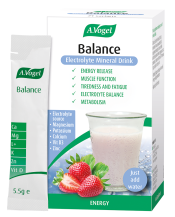Why is diet so important?
There can be a number of reasons for fatigue. Often it can be caused by menopause, pregnancy, an infection such as flu, or by just being too busy. In some cases, fatigue can be caused by poor diet.
Diet is vital for beating fatigue – after all, the main reason any animal eats food is for energy. If your diet is poor, then it implies you’re not getting the nutrients you need to sustain healthy energy levels. Eating a diet for fatigue doesn’t need to be complicated or dull though. For most people it’s just a case of swapping a few unhealthy foods for a few healthier ones, like switching to wholemeal pasta or brown bread. Unless your current diet is solely made up of fast food and ready meals, adjusting to a fatigue-fighting diet shouldn’t be too much of a shock to the system.
So whether your diet is the cause of your fatigue or not, increasing the amount of energy rich foods you eat will help you feel less tired. We’ve provided a guide to help you figure out which foods provide good sources of energy and which you should avoid.
What to eat
1. Sweet potatoes
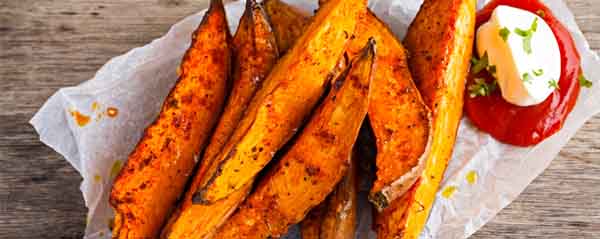
Sweet potatoes are an excellent choice if you’re looking to boost your energy levels! Not only are these vibrant root vegetables a fantastic source of minerals like iron and calcium, they also contain B vitamins which can help to support your metabolism and actually allow the energy from your body to be utilised in the first place. It also helps that sweet potatoes are rich in fibre, which can be incredibly useful as fibre helps to keep your digestive system moving and provides a slow, steady release of energy which is very different from the peaking and crashing that accompanies sugary foods.
My favourite sweet potato recipes
Spiced Chickpea and Tahini Sweet Potato JSHealth Bowl
Are there any alternatives?
If you’re looking for some tasty alternatives to sweet potatoes you could try parsnips, butternut squash, carrots or even pumpkin!
2. Spinach
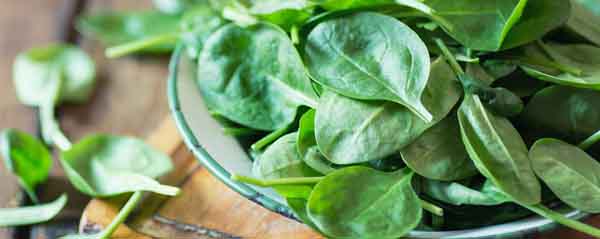
Iron deficiency is a real problem here in the UK and it’s an issue that can definitely sap your energy levels, as I discuss in my blog, ‘What happens when you are low on iron?’ Traditionally, foods like red meat are recommended as they’re perceived to contain more iron but interestingly, spinach actually contains more iron per 100g than a beef steak does! Spinach also has an additional advantage as it also contains plenty of vitamin C. An important nutrient for the immune system and your skin, vitamin C is actually needed to help your body to absorb iron in the first place!
My favourite spinach recipes
Coconut, Spinach and Red Lentil Dhal
Are there any alternatives?
There are plenty of leafy greens you can try if spinach doesn’t take your fancy – kale, swiss chard, watercress and arugula.
3. Chickpeas
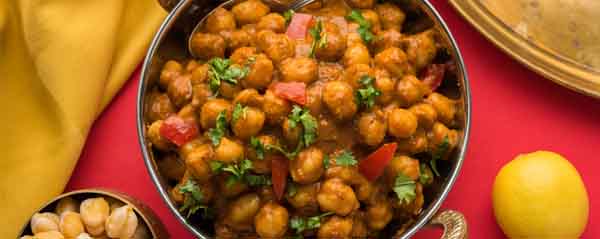
When it comes to maintaining energy, protein is a crucial nutrient as it can be broken down into amino acids, which help to activate your metabolism and build important tissues such as your muscles! However, similar to red meat and iron, animal-derived foods are often seen as the best source which isn’t, strictly speaking, true. Chickpeas, for example, provide a decent amount of protein and fibre as well as other nutrients such as manganese and copper.
My favourite chickpea recipes
Homemade Protein Packed Chickpea & Lentil Hummus
Are there any alternatives?
When it comes to alternatives to chickpeas you could try other beans and pulses such as kidney beans, lentils, butter beans and pinto beans.
4. Chia seeds
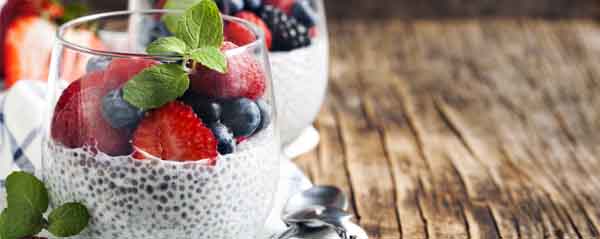
These small black seeds contain protein, healthy fats and fibre. Chia means ‘strength’ in Mayan, and it is thought that the great Aztec warriors ate these seeds to give them energy and strength for long battles. In addition to protein though, chia seeds also contain plenty of fibre and magnesium. Magnesium is particularly important in relation to your energy levels as this multitalented nutrient can help to support your metabolism and your sleep patterns. That’s probably why low magnesium levels are often associated with fatigue! It also helps that they’re a fantastic source of omega-3 too!
My favourite chia seed recipes
Overnight Passion Fruit Chia Pudding
Are there any alternatives?
If you’re looking for an alternative to chia seeds you could try other seeds such as pumpkin seeds, sunflower seeds and sesame seeds which tend to be rich in fibre, protein and healthy fats.
5. Almonds
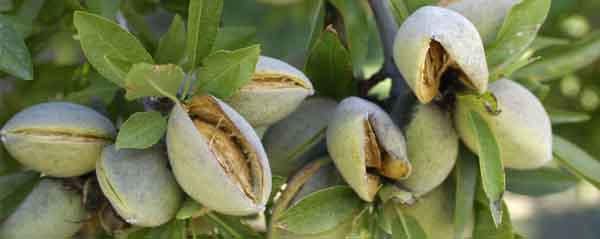
Almonds are one of the more popular members of the nut family thanks to their slightly sweet flavour which is just as well as they’re brimming with energy-boosting nutrients! Once again, fibre, magnesium and protein are all present which means these small treats can help to balance your blood sugar levels, preventing massive spikes and energy slumps. Nowadays there’s an amazing selection of almond-based products from almond milk to almond flour so you’re definitely spoiled for choice.
My favourite almond recipes
Oat & Almond Breakfast Muffins
Creamy Almond Butter Acai Bowl
Are there any alternatives?
Choose from walnuts, cashews, hazelnuts and pecans. These are a great source of energy, and make an easy, delicious afternoon snack! Raw, unsalted nuts are the healthiest option.
6. Water
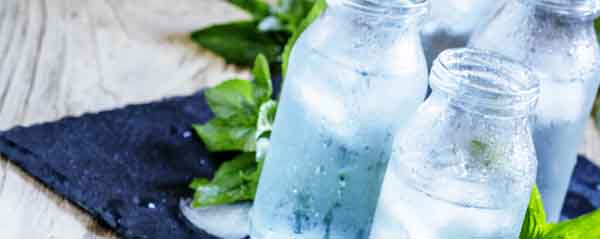
Water is not a food, but it is so important for maintaining energy levels as it plays an important role in metabolising food. Even mild dehydration can affect energy levels (as well as mood and concentration) because the body puts all of its energy into preserving water rather than digesting food. The common recommendation is around two litres a day. If you struggle to drink this much, try adding a straw to your bottle; this allows you to sip away all day without really thinking about it.
7. Green tea
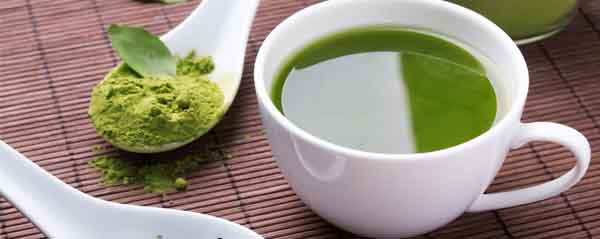
Again, this is not a food, but green tea helps boost metabolism which makes it easier and quicker to digest food and get the nutrients and energy you need. It’s lower in caffeine than black tea as well, so won’t cause the same crash in energy later on plus, green tea is naturally rich in antioxidants which can help to combat oxidative stress, helping you to maintain a healthy immune system, muscles and joints and skin.
Tasty Treats
There are loads of delicious, healthy snacks you can make that combine these energy-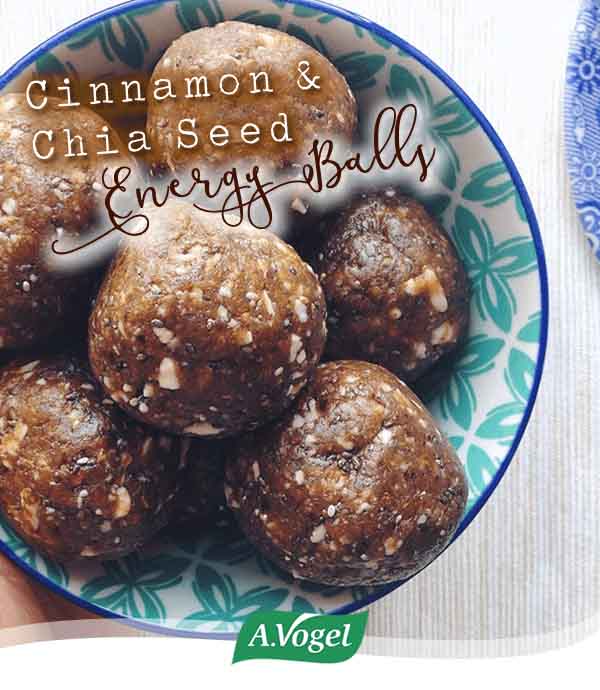 boosting ingredients. Anything with nuts and seeds is a good start, and the less refined sugar the better!
boosting ingredients. Anything with nuts and seeds is a good start, and the less refined sugar the better!
We just love these Cinnamon and Chia Seed Energy Balls. They’re so easy to make and great for snacking on at work, or for refuelling before and after exercising. Why not give them a go?
TIP: Add some cacao powder for an extra indulgent treat!
What not to eat
Processed foods – These include ready meals, sugary breakfast cereals, tinned food and bacon. These foods tend to be high in sodium which is dehydrating, as well as saturated fats that will make you feel sluggish.
Caffeine – Caffeine seems like a good way to boost energy, but this is a short-term solution. Eventually your energy levels will crash to lower than they started and, to make matters worse, drinking caffeine can also deplete your stores of essential energy-boosting nutrients such as magnesium! Try our caffeine free alternative to coffee, Bambu. If you really can’t manage without caffeine, at least opt for black coffee as this doesn’t contain the sugars and chemicals found in fizzy drinks.
Sugars and simple starches – You don’t need to completely eliminate these from your diet but you should definitely reduce them. Simple starches are the opposite of complex carbohydrates. Easily broken down, they provide short bursts of energy, which is good sometimes, but a diet based on this kind of carbohydrate will leave you with energy levels all over the place. Sugars are found in chocolate and sweets, and simple starches are found in white flour and white bread.
Breakfast and Smoothies
No healthy-eating article would be complete without a special mention of breakfast and smoothies.
One of the first rules of any healthy diet is that you must eat breakfast. This is particularly important for fighting fatigue because it kick-starts your day and gives you the energy to be productive up until lunchtime. It even helps lose weight, because it prevents unhealthy snacking during the morning. The right kind of breakfast is important though – it should be healthy, with a mix of nutrients and food groups. We recommend: wholegrain cereal; granola with fruit and yogurt (or a vegan alternative such Alpro yogurt); whole grain toast with fruit or eggs; porridge; or a smoothie.
Smoothies can make a healthy, filling meal if you know what to put in them. They can be high in sugar if they are entirely fruit based, but there are plenty of ingredients you can add to balance the nutritional value. Adding oats to a smoothie really helps fill it out (blend this first with a little milk, yogurt or water), or you could add chia seeds for extra energy while including some greenery like spinach and avocado helps add some extra nutritional value. You could also think about introducing a prebiotic supplement such as Molkosan Fruit to help support your friendly gut bacteria!
Is there anything I can take for fatigue?
When it comes to products and supplements specifically aimed at fatigue, most of the time they are loaded with unwanted sugars and nasty additives which, while being a ‘quick fix’ won’t sustain your energy levels for too long.
That’s why here at A.Vogel, we prefer to focus on more natural alternatives. As I’ve mentioned throughout this article, getting the right balance of vitamins and minerals is absolutely pivotal for healthy energy levels which is why, as a nutritionist, I often recommend our Balance Mineral Drink. This contains a combination of important electrolytes like potassium, vitamin D, magnesium, calcium and zinc which can help to support normal muscle function and is great if you’re experiencing bouts of fatigue and tiredness.
As a liquid, it’s also easier for your body to absorb, plus, when mixed with water, it provides a pretty tasty strawberry flavour. Ideal as a post-workout drink, you could also try taking this when you feel that afternoon slump coming on!
(Originally published 4/8/16, updated on 4/12/18)





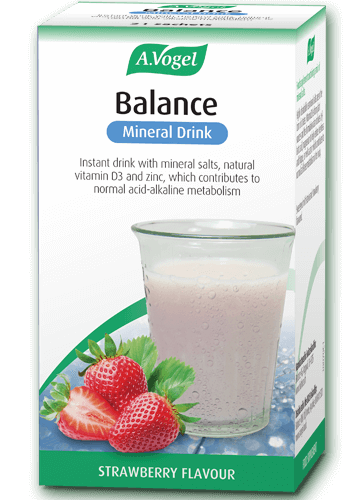 This fatigue-fighting Balance Mineral Drink is ideal for giving you a post-gym burst of energy, containing a combination of potassium, calcium, vitamin D, magnesium, plus more!
This fatigue-fighting Balance Mineral Drink is ideal for giving you a post-gym burst of energy, containing a combination of potassium, calcium, vitamin D, magnesium, plus more! Looking for our products in a store near you?
Looking for our products in a store near you?
